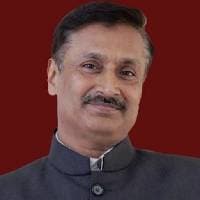NEP 2020: Challenges and Opportunities for Teachers
by
On the 11th of June 2014 Narendra Modi made his first speech in the Parliament as the Prime Minister. He had spoken for slightly more than an hour and during his speech he spoke for nearly seven minutes on education. That vision of the PM has come true through the National Education Policy 2020 (NEP). Mr. Modi had made it clear that education will have the less privileged children as its first priority and the teachers would be centre-stage. He also made it clear that technology would be honed to reach out to the hitherto unreached. The NEP 2020 fulfils his vision of 21st Century education in India.
During 2015 to 2019 a lot of emphasis was given on the use of technology in education and at the nucleus was the teacher. The Government of India established its own massive open online platform by the name of SWAYAM and also launched its bouquet of thirty two educational television channels by the name of Swayam Prabha. Any teacher from anywhere can design his/her own course and place it on the SWAYAM, and learners from anywhere in the country or abroad can take the course. This initiative was a precursor of the Pandemic which hit the world in 2020. Geographical boundaries have been removed and the teacher has the freedom to become a global teacher. On the one hand it brought a great opportunity to the teachers but it also has brought great challenge. The competition for teachers has increased manifold. The competition is no more with the teachers in the school or the town but from any or all teachers of the world. Now every teacher has the opportunity to teach to a real global classroom but the challenge is to be the best otherwise the student can exit anytime. The opportunity to perform and be recognised is unlimited but the competition is also equally unlimited.
The Policy has committed to provide opportunity to students with aptitude for teaching through a nationwide test to enter teaching profession and also provide scholarships, especially to women who want to enter the teaching profession. Section 5.2. of NEP says “To ensure that outstanding students enter the teaching profession – especially from rural areas – a large number of merit based scholarships shall be instituted across the country for studying quality 4-year integrated B.Ed. programmes.” The teacher education program may be long, of four year duration but all would be supported to pursue the training. Conjoined with the pre-service training will be continuous professional development. Ours is the only profession where individual excellence counts. NEP provides the opportunity to continuously grow and become better teachers. Coordination between Boards has been poor. To fill that gap a central agency will be established to coordinate between Boards. The Central Cabinet has approved the formation of a body by the name of PARAKh on the 14th of October 2020.
The major challenges would be to:
- Become lifelong learners;
- Keep in touch with the disciplinary knowledge as learners will have access to the latest information online;
- Learn new technologies regularly as every machine is updated every few months;
- Degrees won’t matter much but the performance will count;
- Compete with global teaching community to remain relevant.
The Ministries - Central and States; have been regulating and deciding on issues related to schooling whereas it should be done by the experts and professionals. Section 8.2. of the NEP says “At present, all main functions of governance and regulation of the school education system … are handled by a single body, i.e., the Department of School Education or its arms. This leads to conflict of interest and excessive centralised concentration of power.” The NEP it is clear intends to take school education out of the Ministry of Education and put it in the hands of the professionals. The school leaders, who have had little say in school administration will hopefully have more say, rather will be in control of the schools. The policy commits to have the teachers and school leaders centre-stage. Section 5.1 says “Teachers truly shape the future of our children – and, therefore, the future of our nation. … The high respect for teachers and the high status of the teaching profession must be restored so as inspire the best to enter the teaching profession.” It’s time for the teachers to express themselves. What should change? Teachers must have their disciplinary as well as professional associations, which NEP also desires to establish. Indian teachers have not been able to form vibrant associations. The teachers and the school leaders must become opinion leaders as well and put forth their views on what should change in schooling. There is very little publication from the school leaders.
Teachers and especially school leaders should think and express on various platforms verbally and in print, their opinion about revamping school education. All must together demand for an independent regulatory body for school education which should be independent of the Central as well as the State governments on the lines of the University Grants Commission. This may be called the School Education Commission.
All the best.

Chandra Bhushan SharmaProfessor of Education, IGNOU.Former Chairman National
Institute of Open School (NIOS)

